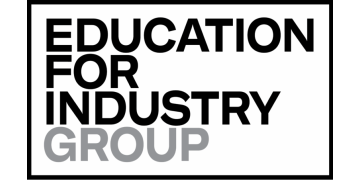The government is to hold an independent review into workforce professionalisation, including the effectiveness of the Institute for Learning (IfL).
John Hayes MP, minister for education, skills and lifelong learning, said the broad review would look at arrangements to achieve a professionalised workforce in further education, while also looking at the role of the IfL.
However, it would only be commissioned once parties agree to refrain from seeking legal action in the aftermath of the dispute over memberships IfL fees.
The organisation had sought to introduce a fee for its membership, which is compulsory for teachers in adult and further education.
However, members of the University and College Union (UCU) voted in the summer overwhelmingly to stop paying fees to the IfL, which the union believes is currently “not fit for purpose”, and threatened legal action.
In response to the announcement of the review, the UCU has now “suspended” its legal threat to the IfL.
Mr Hayes said: “I am pleased to hear… a basis has been proposed on which constructive discussions can be resumed and legal action suspended, and I want to do all that I can to help find a solution that is in the best, longer term interests of those who are served by the sector and those who work within it.”
He added: “I am happy to confirm my willingness to commission an independent review that would look broadly at the arrangements for achieving a professionalised workforce and how this is facilitated by the Institute for Learning and other partners in delivering the regulations and other policy initiatives aimed at supporting a professional workforce.”
UCU has welcomed the review and its general secretary, Sally Hunt, said: “As the result from our recent ballot made abundantly clear, the current arrangements are simply not up to scratch.
“Boycotting the IfL has not been a decision our members have taken lightly, but to be effective as a professional body it must enjoy the confidence of the majority of practitioners.
“It is essential the review does not shy away from asking awkward questions and it hears directly from staff.”
IfL’s chief executive, Toni Fazaeli, said they would look to the review to promote the professional interests of teachers and trainers.
She added: “IfL welcomes an independent review of workforce professionalisation in the further education and skills sector, to assess and acknowledge the contributions already being made by IfL and other partners, and to recommend ways of building on what has been achieved so far.
“We look forward to working with all the parties involved to establish the terms of reference for this broad inquiry.”
However, no date for the review has been set thus far and a further discussion on its terms of reference is due to be held soon.
Mr Hayes said: “My aim would be to commission this review as soon as possible.”







The threat of legal action seems to have acted as an efficient catalyst for bringing about an investigation of the usefulness (????) of IfL. I only hope the investigators ask IfL’s unwilling members what they think, instead of just swallowing and regurgitating IfL’s own endless self-congratulatory propaganda.
Members of the Independent Review, before you begin, there are a few things I think you ought to know about IFL.
IFL have a propensity to spin statistics in their own favour when it suits them e.g. IFL criticise the boycott turnout figure of 32% (with a 90% majority voting yes). Yet when referring to its own turnout figures for the election of member representatives, they say 5.3% “is a good turnout”. (Most people I know threw their IFL ballot papers, and all the other junk mail from IFL for that matter, straight into the bin in disgust.)
IFL use out of date and unreliable data.
In a Guardian article Toni Frizaeli claimed: “most members are satisfied with how IFL operates”. When she said this in April 2011 she was quoting from an IFL funded, ‘online survey’, conducted by the NFEA, misleadingly entitled “Member voice….” . The survey received responses from just over 4% of membership with only 59% rating IFL as not good or excellent.
IFL often quote from online member surveys. Anyone, members or casual browsers, can have a go at these surveys on the IFL Website…. as many times as they like! Try it and see.
I hope the review also notes that the so-called democratically elected representatives of the Advisory Council (aka IFL’s Suggesion Box), only represent 5.3% of the membership, many of whom claim they weren’t sent ballot papers.
Also note that Non-Lecturers, the majority of leadership, occupy 90% of seats on the Advisory Council (AC) and 80% on the Non-Executive Board (NEB).
Members of the Review, if you want to get to the truth behind IFL you must engage in dialogue with the membership. And remember, one of the major issues at the heart of this dispute is the lack of grass-roots membership involvement in a so-called ‘member-led’ organisation.
http://www.ifl.ac.uk/newsandevents/latest/ifl-announces-2009-council-election-results